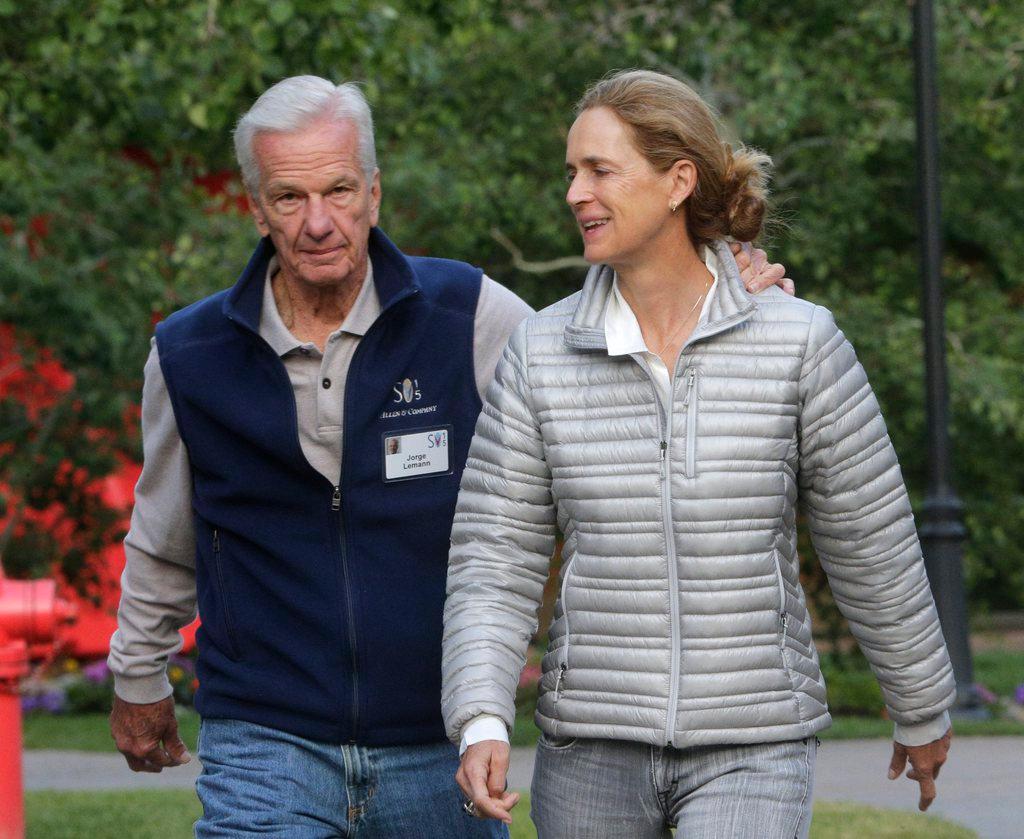Swiss charitable foundations continue to flourish

Switzerland has one of the highest concentrations of philanthropic foundations in the world - and the sector keeps growing strongly. Last year, over 13,000 grant-making foundations were registered with a combined fortune of almost CHF100 billion ($100 billion) – a 30% increase since 2012 -, a new report shows.
In 2017, a new grant-making foundation was created in Switzerland almost every day (364), while at total of 187 shut up shop, taking the overall total to 13,129, according to the SwissFoundations 2017 annual reportExternal link, published on Tuesday.
The report’s authors say Switzerland has one of the highest concentrations in the world – 15.6 foundations per 10,000 residents – with half of all new institutions created in the past 20 years.
SwissFoundations does not rank national foundations by size or influence. Swiss foundations report their annual account information to the relevant surveillance authorities but the details are not public.
Some of the biggest and most influential, however, include the Fondation Beyeler, the Avina Foundation of Stephan Schmidheiny, the Fondation Botnar, the Fondation Hans Wilsdorf, the Jacobs Foundation, the Ernst Göhner Stiftung and the Fondation Leenaards.
Over the past five years, the total fortune of Swiss grant-making foundations has risen by one-third to CHF97.4 billion, the umbrella organization said. The presence of larger institutions brings the average assets of a grant-making foundation to CHF8.2 million, but 80% actually have a fortune of below CHF5 million.
Swiss private wealth
Traditional areas of focus remain culture and leisure, followed by social services, education and research, health and the environment. Less than 5% of Swiss grant-making foundations are religious. Around half of funds goes abroad.
The recent dynamism in this charitable sector is due to various factors. First is the general increase in private wealth. Switzerland remains the world’s largest wealth management centre for international assets ($1.84 trillion in 2017), and a chunk of foreign and Swiss funds go to foundations.
“Lots of Swiss inheritance money is being handed down, but nowadays 60- or 70-year-olds are not giving money to 40-year-olds. It’s more about 90-year-olds giving to 60-year-olds, and often these people are already settled and have enough money for life, so they think about what else they can do with their inherited money,” explained Georg von Schnurbein, director of the Center for Philanthropy Studies at the University of Basel. External link
He said the role of the state and civil society was also changing.
“Today, especially in Europe, people realise the state cannot solve all our problems so they are engaging more in educational and social issues,” he commented.

More
Proliferating ‘crypto foundations’ cause concern
The report said the recent increase in funds was also linked to numerous institutions such as retirement homes or museums transforming themselves into foundations. Also, foundations which had invested heavily in real estate had reaped the benefits.
Specialists also say Switzerland’s stable legal system, rather than any special tax treatment, has helped the development.
“It’s very easy to create a foundation here. There are very liberal regulations, in terms of the purpose, organization and reporting,” said von Schnurbein. “In the US, foundations have a tax deduction of 40% but here it’s only 20%.”
General dynamism in the sector is assisted by Swiss people’s “positive attitude about philanthropic work and activities destined for the public”, said Claudia Genier, deputy director of Swiss Foundations.
Where is it booming?
Most new grant-making foundations last year were created in canton Zurich (57), followed by Geneva (55) and Zug (47). Zug has witnessed a boom in so-called crypto-foundations linked to the emergence of blockchain technologies.
“It’s mainly the legal structure of the foundation that made Switzerland attractive for blockchain technology,” said von Schnurbein. “It is quite liberal. In the coming years sooner or later there will be more regulation for blockchain foundations in Switzerland but now it’s a little bit the ‘Wild West’.”
Basel, traditionally the cradle of Swiss philanthropy linked mainly to arts and culture, remains the canton with the highest density of grant-making foundations (45.3 per 10,000), managing around CHF17 billion in assets.
Geneva and the rest of the Lake Geneva region have been catching up fast over the past 5-10 years, due to the influence of so-called International Geneva and finance expertise.
“There are few places on this planet with such a concentration of experts in all fields in such a small area,” said Genier.
Last September, the University of Geneva launched a Centre for PhilanthropyExternal link, in collaboration with the Lombard Odier Foundation and the Edmond de Rothschild Foundations, to encourage academic research and teaching. Lausanne’s IMD business school and the University of St GallenExternal link also recently joined this research field.
This year, the Center for Philanthropy Studies at the University of Basel and the Centre for Foundation Law at the University of Zurich are both celebrating their tenth anniversaries. There are now over 20 similar philanthropy research centres in Europe.
A recent studyExternal link by the Organisation for Economic Co-operation and Development (OECD) on private philanthropy for development indicated average flows of $7.8 billion per year, based on data from over 130 of the biggest private philanthropic foundations from around the world. Swiss foundations gave some CHF572 million between 2013 and 2015, the OECD said.
While almost three-quarters of funds originated from foundations based in the United States – the Bill & Melinda Gates Foundation (BMGF) represents about half of this amount – other top countries for philanthropic funding for development are Britain (7%), the Netherlands (5%), Switzerland (2%), Canada (2%) and the United Arab Emirates (2%).
According to von Schnurbein, $1 billion of money spent by the BMGF passes through Switzerland to the rest of the world. “Around one-third of the BMGF’s annual spending goes via Swiss organisations or Swiss-based agencies such as the Vaccine Alliance GAVI, the Global Fund to Fight AIDS, Tuberculosis and Malaria, and the World Health Organization (WHO),” he said.

In compliance with the JTI standards
More: SWI swissinfo.ch certified by the Journalism Trust Initiative






You can find an overview of ongoing debates with our journalists here. Please join us!
If you want to start a conversation about a topic raised in this article or want to report factual errors, email us at english@swissinfo.ch.